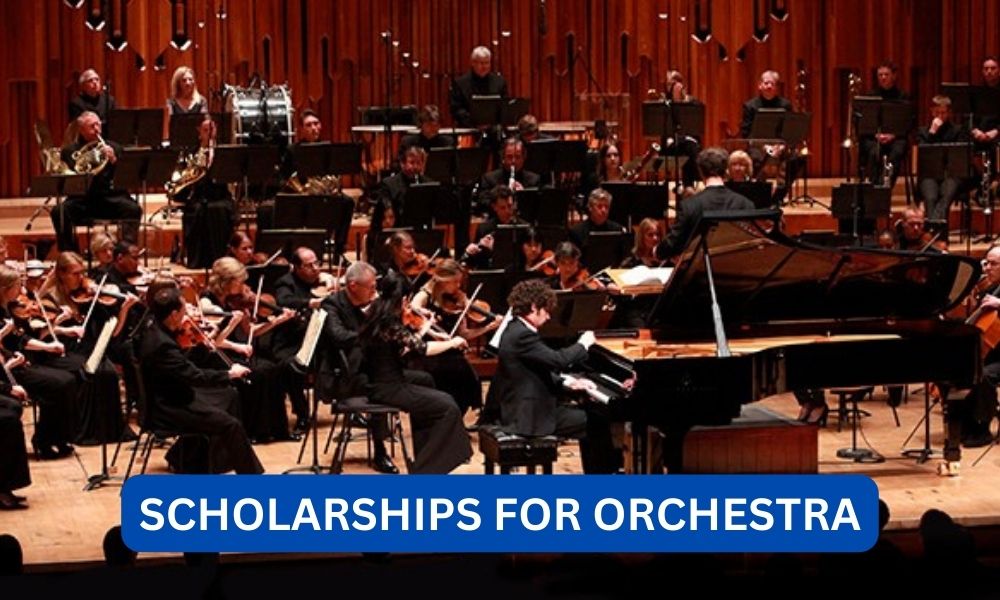Music has always been a powerful form of expression and a source of joy for many people. For those who are passionate about playing an instrument, being a part of an orchestra can be a dream come true. However, the cost of pursuing this dream can be a major barrier for many students. This is where scholarships come in. Scholarships for orchestra not only provide financial aid but also recognize and support talented musicians. In this article, we will explore the world of orchestra scholarships and answer the question – Can you get a scholarship for orchestra?
Contents
The Importance of Orchestra Scholarships
Orchestra scholarships play a crucial role in making music education accessible to students from all backgrounds. They provide financial assistance to students who may not have the means to pursue their passion for music. Scholarships also recognize and reward talented musicians, encouraging them to continue their musical journey and reach their full potential.
Moreover, orchestra scholarships also contribute to the diversity and inclusivity of orchestras. By providing opportunities to students from different socio-economic backgrounds, scholarships help create a more diverse and representative orchestra community.
Types of Orchestra Scholarships
There are various types of orchestra scholarships available for students. Some are offered by music schools, while others are provided by organizations or private donors. Let’s take a look at some of the common types of orchestra scholarships:
Read:The Significance of ScholarshipsMerit-Based Scholarships
These scholarships are awarded based on the student’s musical talent and achievements. They may require an audition or submission of a performance video. Merit-based scholarships are highly competitive and are usually awarded to students with exceptional musical abilities.
Need-Based Scholarships
These scholarships are awarded to students who demonstrate financial need. They may require the submission of financial documents to determine the student’s eligibility. Need-based scholarships aim to provide financial aid to students who may not have the means to pursue their musical education.
Instrument-Specific Scholarships
Some scholarships are specifically for students who play a particular instrument. For example, there are scholarships for violinists, cellists, or pianists. These scholarships may require the student to demonstrate their proficiency in the instrument through an audition or performance video.
Organization-Specific Scholarships
Many organizations, such as music foundations or orchestras, offer scholarships to support young musicians. These scholarships may have specific eligibility criteria, such as being a member of a particular orchestra or participating in a specific program.
Examples of Orchestra Scholarships
Now that we have looked at the different types of orchestra scholarships, let’s explore some examples of scholarships that are available for students:
Read:Can you get a scholarship for losing a pArent?The Sphinx Organization
The Sphinx Organization is a non-profit organization that aims to increase diversity in classical music. They offer various scholarships, including the Sphinx Competition, which is open to Black and Latinx string players. The competition provides financial aid, performance opportunities, and mentorship to young musicians.
The League of American Orchestras
The League of American Orchestras offers the Bruno Walter National Conductor Preview, which provides financial support and mentorship to conductors from underrepresented communities. The program aims to increase diversity in the field of conducting and provide opportunities for talented musicians.
The National Federation of Music Clubs
The National Federation of Music Clubs offers scholarships to students pursuing a degree in music. They have various scholarships, including the Lynn Freeman Olson Scholarship for piano students and the Ruth B. Robertson Scholarship for string students.
How to Apply for Orchestra Scholarships
Applying for orchestra scholarships can be a daunting process, but with the right approach, it can be a rewarding experience. Here are some tips to keep in mind when applying for orchestra scholarships:
- Start early: It’s essential to start researching and applying for scholarships as early as possible. Many scholarships have early deadlines, and you don’t want to miss out on any opportunities.
- Read the requirements carefully: Make sure you understand the eligibility criteria and requirements for each scholarship. This will help you determine which scholarships you are eligible for and how to prepare your application.
- Prepare for auditions: If the scholarship requires an audition, make sure you practice and prepare well in advance. Seek guidance from your music teacher or mentor to help you prepare for the audition.
- Submit a strong application: Your application should showcase your musical talent and achievements. Make sure to include any awards, performances, or other relevant experiences that demonstrate your passion and dedication to music.
- Write a compelling essay: Many scholarships require an essay as part of the application. Use this opportunity to share your story and explain why you deserve the scholarship.
- Proofread your application: Before submitting your application, make sure to proofread it for any errors or typos. A well-written and error-free application can make a good impression on the scholarship committee.
Statistics on Orchestra Scholarships
According to a report by the National Association for Music Education, 60% of music students receive some form of financial aid, including scholarships. This shows the significant role that scholarships play in making music education accessible to students.
Read:What are cobra benefits?Moreover, a study by the League of American Orchestras found that only 4% of orchestra musicians are Black or Latinx. This highlights the need for more scholarships and programs that support diversity and inclusivity in the field of classical music.
Conclusion:
In conclusion, orchestra scholarships are not only a means of financial aid but also a way to recognize and support talented musicians. They play a crucial role in making music education accessible to students from all backgrounds and contribute to the diversity and inclusivity of orchestras. With the right approach and preparation, students can increase their chances of receiving a scholarship and pursue their passion for music. As the famous saying goes, “Where words fail, music speaks,” and orchestra scholarships help ensure that everyone has a chance to let their music speak.









